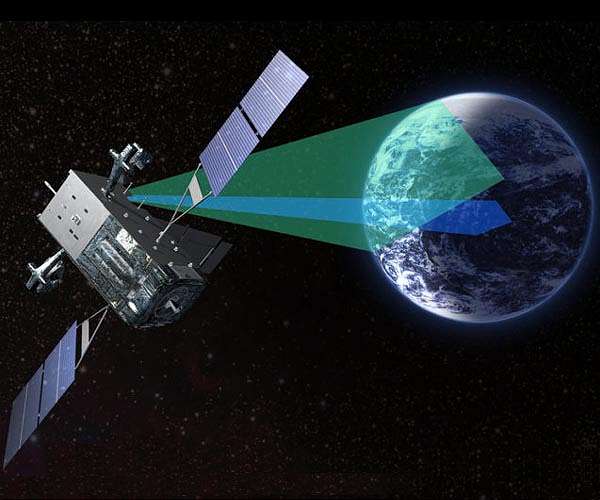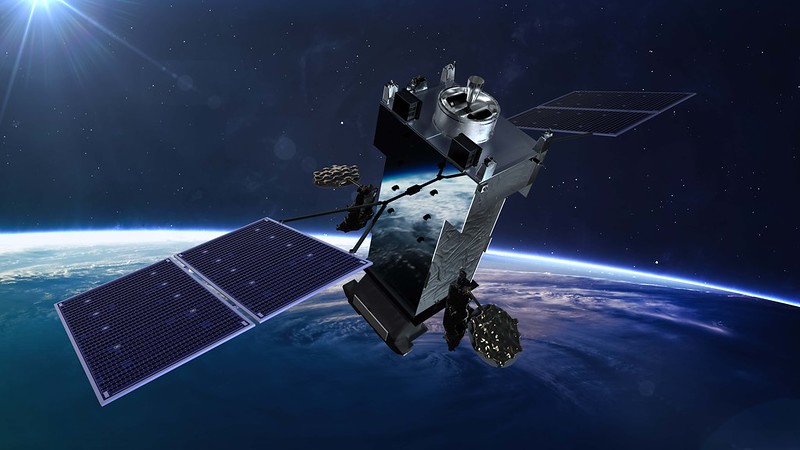Raytheon Intelligence & Space completes Next Gen OPIR GEO Block 0 Milestone
Sensor payload design for missile warning system tested for space survivability
A satellite constellation orbits Earth
EL SEGUNDO, Calif.,(Feb. 9, 2022) – Raytheon Intelligence & Space has completed Thermal Vacuum Testing of its sensor payload for the U.S. Space Force’s Next-Generation Overhead Persistent Infrared, or Next-Gen OPIR GEO, Block 0 missile warning satellites designed and built by spacecraft prime contractor Lockheed Martin. Testing was completed on Jan. 27, 2022.
“Space is a dynamic environment. Ensuring our instruments are prepared for challenges is paramount to our success,” said Kristin Robertson, president of Space & C2 for RI&S. “We’re pulling from our deep bench of technological expertise to support the urgent need for space-based early warning of existing and advanced strategic missile threats.”
Thermal vacuum testing is designed to expose the payload to a space-like environment. The test provides necessary data required for model correlation to support multiple program milestones such as flight hardware manufacturing, test, and payload delivery.
In addition to TVAC, the RI&S team used a tabletop thermal vacuum chamber to complete early design validation of the key optical components to its payload in time to support the payload critical design review (CDR) held in July of 2021.
Using digital engineering, model correlation data from thermal vacuum testing is used in a simulation environment, allowing engineers to demonstrate performance across all mission threads from design, to launch, to post-delivery support. This type of agile development can offer rapid and iterative design insights while modeling evolutionary payload upgrade capabilities to meet future threats and mission requirements. Digital engineering can also save elements of non-recurring engineering costs on programs.
“Advanced threats require advanced solutions,” said Robertson. “And we’re looking at all the ways we can leverage high Technology Readiness Level components and sensor programs already in production to ensure we meet the critical mission requirements.”
Designed to provide more resilient missile warning, Next-Gen OPIR GEO Block 0 was implemented by the Department of the Air Force as a “Go Fast” acquisition program. Lockheed Martin Space selected RI&S as one of two teams to design a viable sensor payload for the program. The first geostationary-orbiting satellite is targeted for launch in 2025.
The RI&S sensor payload is being built in El Segundo, California.








